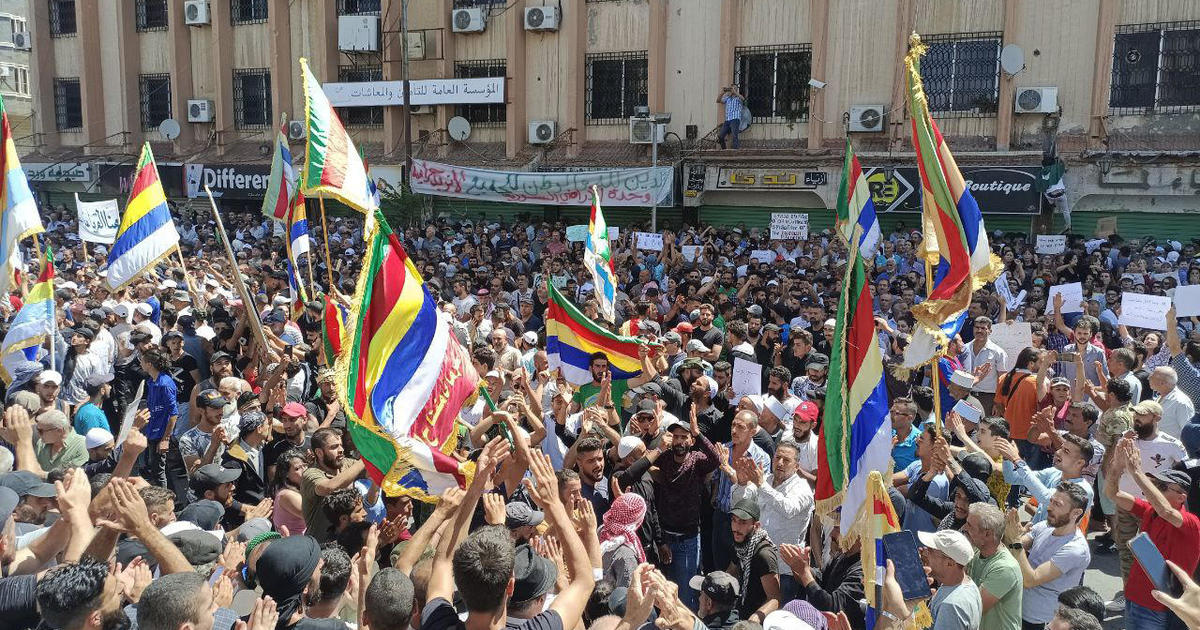Anti-government protests in Syria have been on the rise for over a month, reminiscent of the demonstrations that occurred in 2011. These protests initially stemmed from the country’s worsening financial crisis, as Syria’s economy has been severely impacted by years of war and international sanctions. However, the grievances have quickly evolved into demands for the downfall of President Bashar Assad’s government.
The current wave of demonstrations began in Suwayda, a city located in southern Syria, and also spread to Deraa, where the 2011 uprising originated. The catalyst for these protests was the government’s decision to reduce fuel subsidies and implement a nearly 250% increase in gasoline prices. Despite the government’s attempt to mitigate public anger by doubling public sector wages and pensions, these measures only exacerbated inflation and further weakened the Syrian pound. As a result, millions of Syrians, who were already living in poverty due to years of conflict, found themselves in an even more dire situation. The government blames the country’s economic troubles on the sanctions imposed by the United States and its European allies.
In Suwayda, three protesters were wounded on September 13 when armed individuals, believed to be plain-clothes security forces, opened fire as the demonstrators attempted to shut down a branch of the ruling Baath party. This marked the first instance of shots being fired at protesters during the recent demonstrations. However, overall, the government has shown restraint in responding to the mostly non-violent protests in Suwayda. The city holds significance as it is the heartland of the Druze religious minority in southwest Syria. Assad’s regime has presented itself as a defender of religious minorities against “Islamist extremism” throughout the civil war. Prior to the 2011 revolt, the Druze made up 3% of Syria’s total population and were known for their secularism and high levels of education. They also have a presence in Lebanon, Jordan, and Israel.
Sheikh Hikmat al-Hijiri, the most influential leader of the Druze community in Syria, has called for the establishment of a new democratic state and rejected the authority of the Syrian central government in Suwayda. This has attracted attention from U.S. Representative French Hill, who recently visited rebel-held territory in northwest Syria. Hill had a video call with Sheikh Hijiri, during which they discussed the frustrations of the local people and their peaceful protests. Sheikh Hijiri also accused the Assad government and its Iranian allies of trafficking the illegal drug Captagon in the region. The Biden administration has maintained a firm stance against the heavily-sanctioned Assad government and does not support normalization of relations with them.
While the protests in Suwayda have caused concern for the Syrian government, they do not pose an existential threat. The government has largely regained control over the country, thanks to the support of allies such as Russia and Iran. In fact, other Middle Eastern leaders have begun restoring relations with the Assad government, arguing that engagement is the most effective way to address the flow of refugees and contraband across Syria’s borders. The Arab League, which had severed ties with Syria early in the war, recently readmitted the country as a member. However, the Biden administration has shown no signs of softening its stance on the Assad government and continues to focus on providing humanitarian aid to the devastated areas of Syria.
The state-controlled media outlets in Syria have remained silent on the protests in Suwayda, instead choosing to report on Russia’s provision of food aid to the nearby village of Salkhad. Meanwhile, President Assad is set to travel to Beijing for a bilateral meeting with Chinese President Xi Jinping as part of a Chinese-Syrian summit.
Overall, the ongoing anti-government protests in Syria highlight the deepening economic crisis and widespread dissatisfaction with the Assad government. While the protests have not yet posed a significant threat to the regime, they serve as a reminder of the unresolved issues and fragility that continue to plague the country.
Denial of responsibility! Vigour Times is an automatic aggregator of Global media. In each content, the hyperlink to the primary source is specified. All trademarks belong to their rightful owners, and all materials to their authors. For any complaint, please reach us at – [email protected]. We will take necessary action within 24 hours.


